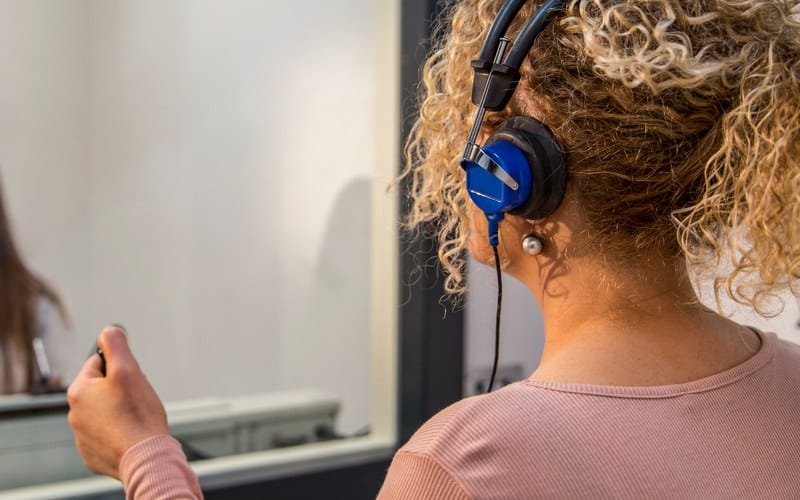We offer comprehensive evaluation services for all ages including but not limited to diagnostic testing, OSHA screenings, auditory processing, tinnitus, as well as specialized testing for non-responsive patients.
Hearing Loss Treatment Doesn’t Have to Be a Solo Expedition
Embarking on any new journey can feel daunting, and getting treatment for hearing loss is no exception. You might not know where to start, but an audiologist can guide you through the process of getting your hearing tested. Once you have those results, you and the team at All Generations Audiology can determine the next best steps together.

Benefits of a Hearing Test
Whether you’re more of a homebody or enjoy seeking out new adventures, untreated hearing loss can impact a variety of lifestyles. Along with making it difficult to communicate with others, there are several other potential side effects.
Studies have shown that untreated hearing loss:
- Hearing aids decrease listening (related) fatigue.
- Research indicates a two to three times increased risk of falls in older adults, with even mild untreated hearing loss.
- Hearing aid use can improve working memory performance in adults, compared to not using hearing aids.
- Adults with untreated hearing loss are more likely to report emotional loneliness/a lack of perceived emotional support.
- Wearing hearing aids improves social engagement/activity amongst adults with hearing loss.
How Does a Hearing Test Work?
You will wear headphones connected to a device that sends sounds to one ear at a time. The audiologist will ask you to press a button or raise your hand whenever you hear a sound.
There are no risks associated with the test, and you can typically receive your results the same day.
What Does an Audiologist Measure?
- How your ears respond to loud sounds
- The quietest sound you can hear at different pitches
- How well you can hear speech
- The movement capacity of your eardrum
- What type of hearing loss you have
Types of Hearing Tests
Hearing Screening
A pass/fail measure to determine whether hearing is within normal limits or may be impaired, meant only to be used to determine if further evaluation may be necessary, not sufficient for programming hearing devices.
Hearing Evaluations
A comprehensive measure of hearing levels for speech and tones at various frequencies, may lead to further testing depending on diagnosis, provides individual hearing levels necessary for programming hearing devices.

Tympanometry
Measure of tympanic membrane (ear drum) mobility, typically used to assist in ruling out and/or diagnosing disorders of the middle ear space.
Pure Tone Audiometry
Determination of patient’s ability to perceive various frequencies (pitches), establishes thresholds (softest level at which patient can hear), may also establish loudness discomfort levels (point at which patient can no longer tolerate).
Speech Audiometry
Determination of patient’s ability to perceive speech, establishes threshold (softest level at which patient can hear), may also establish most comfortable listening level, uncomfortable listening level, and patient’s ability to understand speech clearly in quiet and/or noise.
Otoacoustic Emissions
Evaluation of the function of the inner ear by presenting and sound to the ear, recording sound returned by the inner ear, and comparison of differences between.
Taking the Next Steps on Your Hearing Journey
Your results, shown on an audiogram, will determine the course of action for your treatment plan. The team at All Generations Audiology will partner with you on the best course of action. Just like people, each treatment plan is unique, and so the next steps might vary from patient to patient.
Though hearing devices are the most common treatment, each one’s technology and style are different. Your audiologist will work with you to find the model that works best for you, fit them and provide ongoing support.
Empower yourself and increase your connection to the world around you by seeking treatment for your hearing loss. Don’t miss out on adventures with family and friends. Our audiologists will partner with you as you embark on your new hearing journey.
Call All Generations Audiology, PLLC at (704) 799-7925 for more information or schedule an appointment online.

